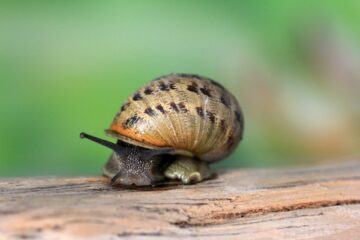Gardening is a rewarding and therapeutic activity that allows you to connect with nature and cultivate vibrant plant life. However, one of the common challenges that gardeners face is dealing with pests that can wreak havoc on their plants and natural pest control can be a key weapon in your arsenal. While chemical pesticides may seem like a quick fix, they can have harmful effects on the environment, wildlife, and even human health. In this article, we will explore various natural ways to keep pests out of your garden, allowing you to maintain a healthy and thriving garden ecosystem without resorting to harmful chemicals.
Identifying Common Garden Pests
Before delving into natural pest control methods, it is essential to understand the common pests that may infest your garden. Some of the most prevalent garden pests include aphids, snails, slugs, caterpillars, beetles, and mites. These pests can cause damage to your plants by feeding on leaves, stems, fruits, and roots, leading to stunted growth and decreased yields. By recognising the signs of pest infestation early on, you can implement preventive measures to protect your garden from further damage.
Creating a Balanced Ecosystem
One of the key principles of natural pest control is to establish a balanced ecosystem in your garden that promotes biodiversity and natural pest management. Planting a diverse range of flowers, herbs, and vegetables can attract beneficial insects such as ladybugs, lacewings, and parasitic wasps that prey on garden pests. These beneficial insects act as natural predators, keeping pest populations in check without the need for chemical intervention. Additionally, incorporating companion plants that repel pests or attract pollinators can help create a harmonious garden environment.
Companion Planting for Pest Prevention
Companion planting is a sustainable gardening practice that involves planting certain crops together to enhance growth, deter pests, and improve overall plant health. Some common companion plants that repel pests include marigolds, garlic, chives, and basil. Marigolds, for example, emit a scent that deters aphids, nematodes, and other harmful insects, making them an excellent companion plant for tomatoes, roses, and other susceptible crops. By strategically pairing companion plants with your vegetables and flowers, you can naturally prevent pest infestations and create a more resilient garden ecosystem.
Natural Pest Control Methods
When it comes to controlling pest populations in your garden, there are several natural methods that you can employ to protect your plants without the use of chemical pesticides. One effective technique is handpicking pests such as caterpillars, slugs, and beetles and disposing of them in a bucket of soapy water. This method is particularly useful for controlling larger pests that are visible and easily removed by hand.
Another natural pest control method is the use of organic insecticidal soaps or neem oil sprays, which target soft-bodied pests like aphids, spider mites, and whiteflies. These natural remedies disrupt the pests’ cell membranes, leading to their dehydration and eventual demise. Additionally, introducing beneficial nematodes to the soil can help control underground pests like root maggots and cutworms, providing long-term protection for your plants.
Cultural Practices for Pest Prevention
In addition to companion planting and natural pest control methods, adopting certain cultural practices can further enhance pest prevention in your garden. Maintaining proper soil health by regularly incorporating compost, mulch, and organic matter can improve the overall vitality of your plants, making them more resilient to pest attacks. Proper watering and drainage practices can also help prevent conditions that are conducive to pest infestations, such as overwatering that can lead to fungal growth and root rot.
Furthermore, practicing crop rotation and intercropping can disrupt the life cycles of pests and prevent the buildup of populations in your garden. By rotating your crops each season and planting different species in close proximity, you can confuse pests and reduce the likelihood of infestations. These cultural practices not only promote plant diversity and soil fertility but also contribute to the long-term sustainability of your garden ecosystem.
Conclusion
Maintaining a pest-free garden through natural methods requires a combination of proactive strategies, careful planning, and a deep understanding of the complex interrelationships within the ecosystem. By incorporating companion planting, natural pest control methods, and cultural practices into your gardening routine, you can create a harmonious environment that supports plant health, biodiversity, and sustainability. Embracing natural pest control and prevention techniques not only protects your garden from harmful chemicals but also fosters a thriving ecosystem that benefits both plants and wildlife. With a holistic approach to pest management, you can enjoy a bountiful harvest and a flourishing garden that celebrates the beauty of nature in its purest form.
Keep on top of your gardening with our free online journal
Our free online tool allows you to organise your ideas and garden plans and help you be as efficient as possible in the garden.
Sign up now

